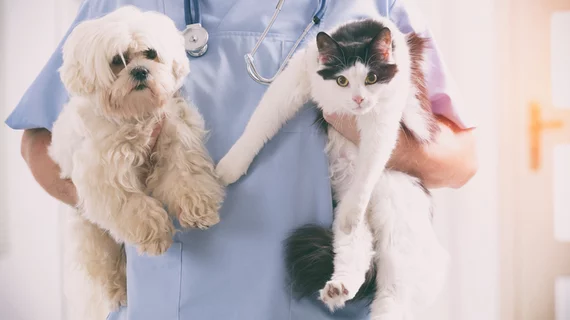FDA: Vets need to be aware of pet owners using animals to access opioids
Considering the pervasiveness of opioid misuse and abuse, people find novel avenues to access the drugs. FDA Commissioner Scott Gottlieb, MD, released a statement outlining resource guide for veterinarians to prescribe opioids for animals.
Recent data from the Centers for Disease Control paint a dire picture for the U.S. and opioids. In 2017, nearly 72,000 people died from drug overdoses—an increase of 6.6 percent from the previous year and an all-time high.
The FDA released a six-point guide for veterinarians to boost responsible prescription habits while limiting misuse.
“We recognize that opioids and other pain medications have a legitimate and important role in treating pain in animals—just as they do for people,” Gottlieb, MD, wrote. “But just like the opioid medications used in humans, these drugs have potentially serious risks, not just for the animal patients, but also because of their potential to lead to addiction, abuse and overdose in humans who may divert them for their own use.”
The FDA’s move comes a month after a paper in the American Journal of Public Health cited an online survey that 13 percent of veterinarians knew a caretaker who had intentionally harmed an animal to access opioid medications.
"While the limited data available suggests diversion from veterinary practices isn't a widespread problem, that doesn't mean we should pretend it doesn't exist," read a statement from the American Veterinary Medical Association (AVMA). "In fact, AVMA policy calls for further research to determine the prevalence of veterinary drug shoppers and to further clarify the degree to which veterinary prescriptions are impacting, or not, the human opioid epidemic."

